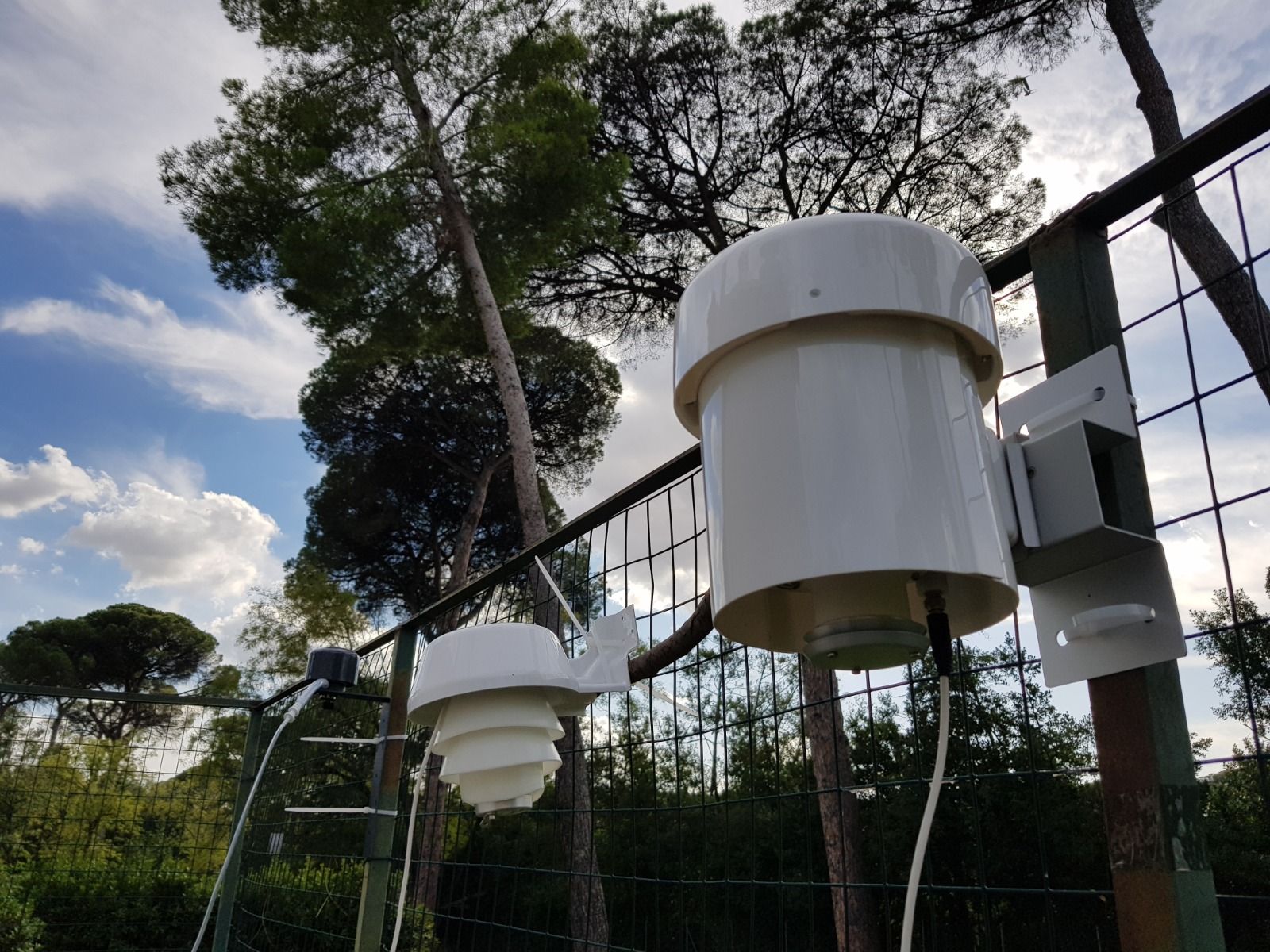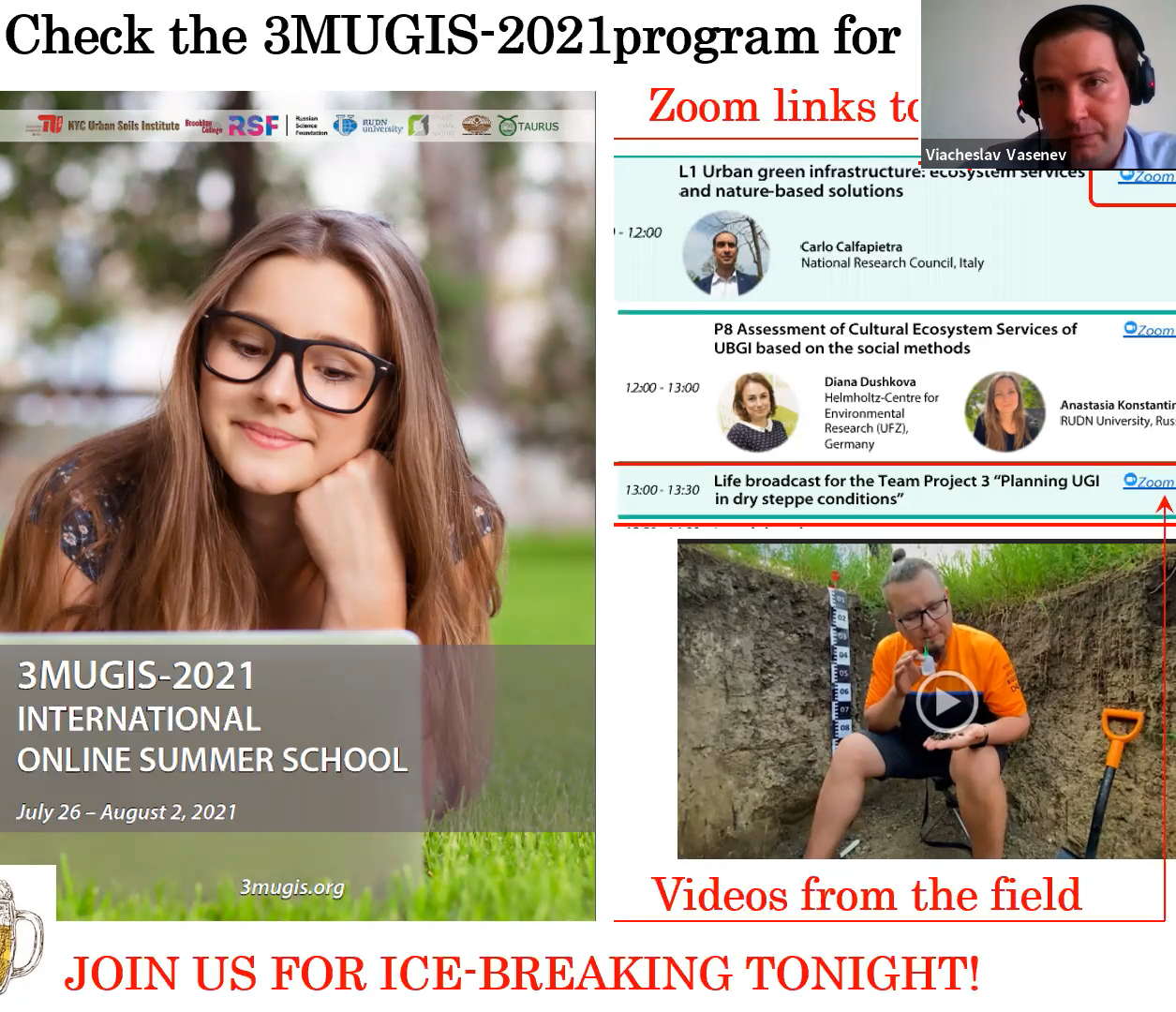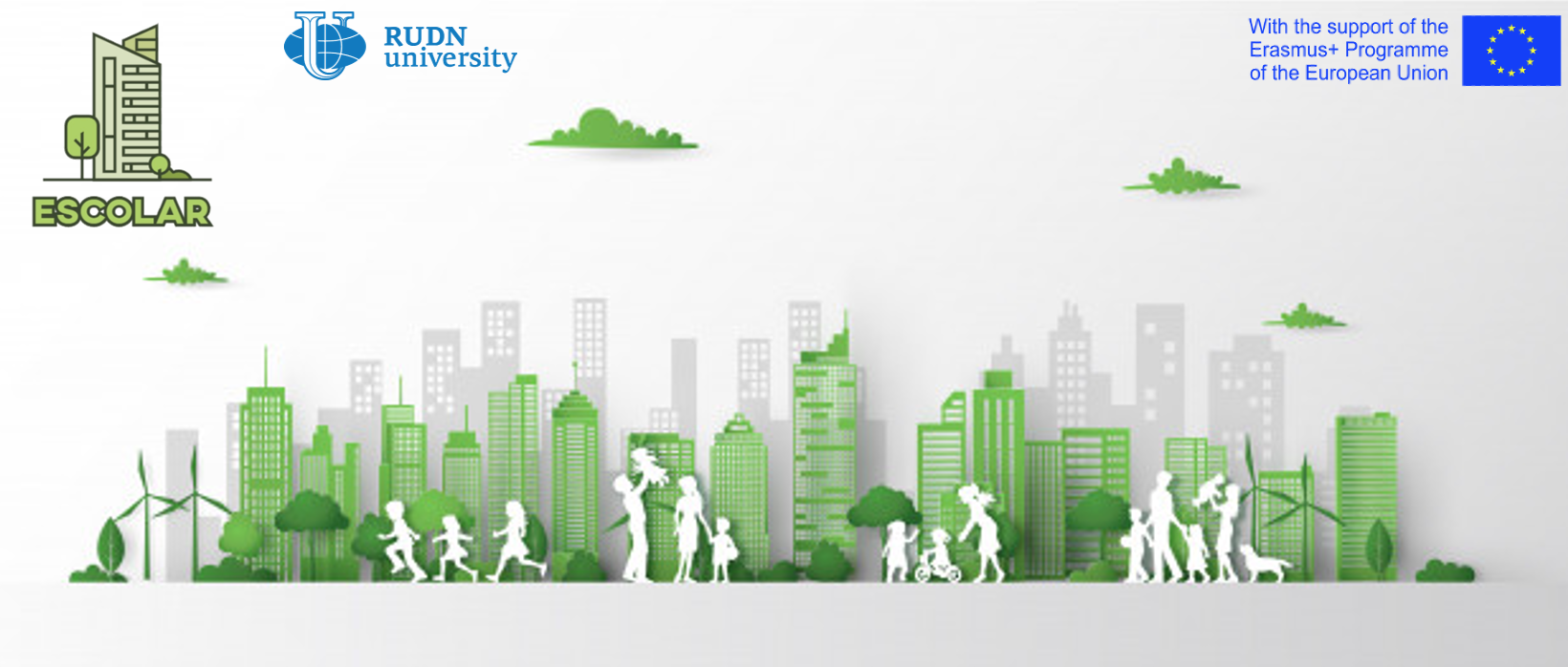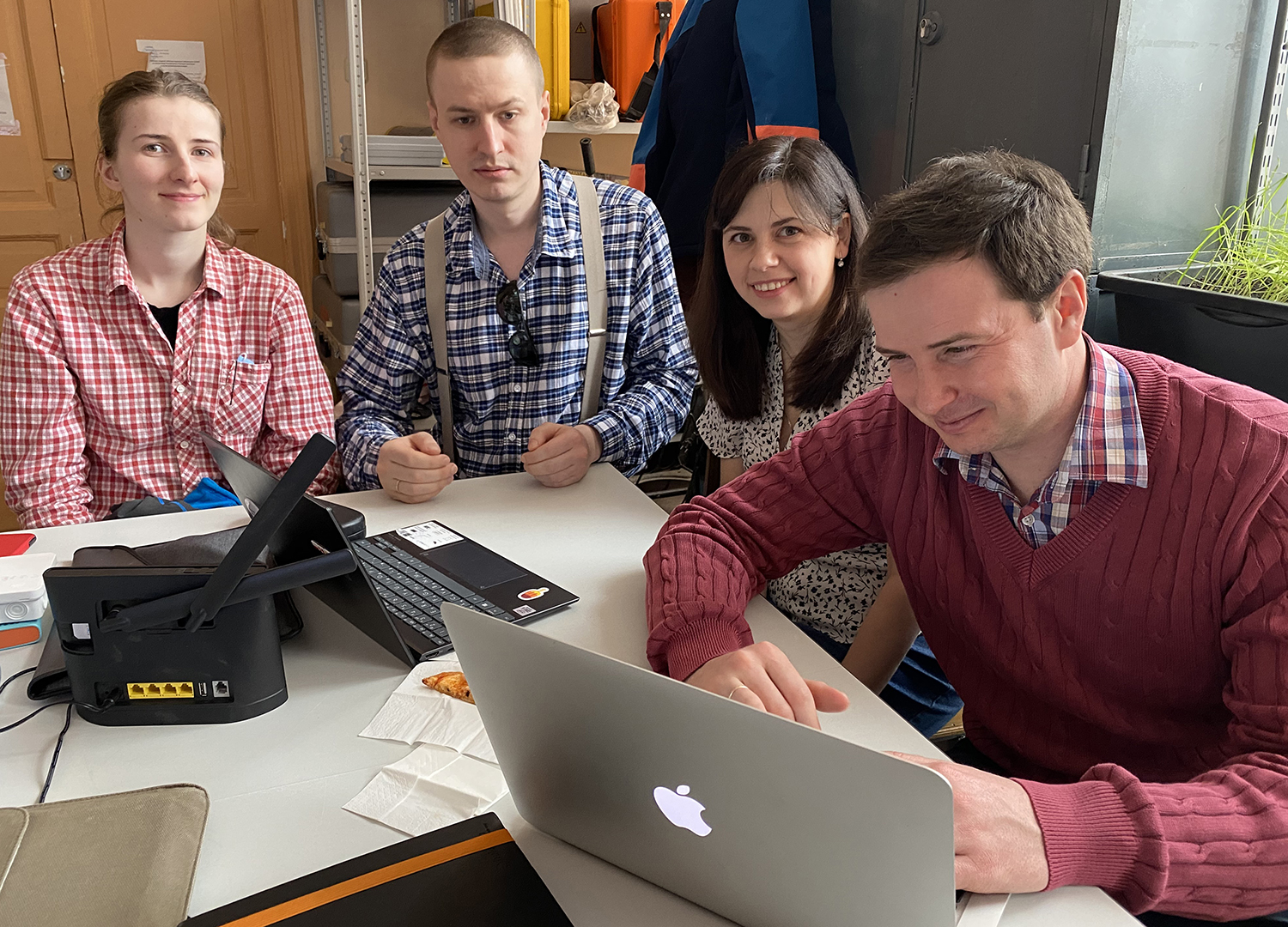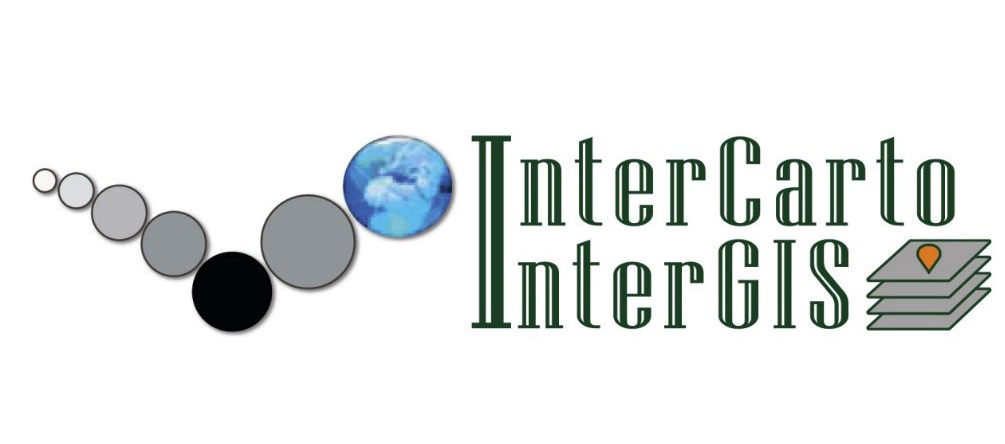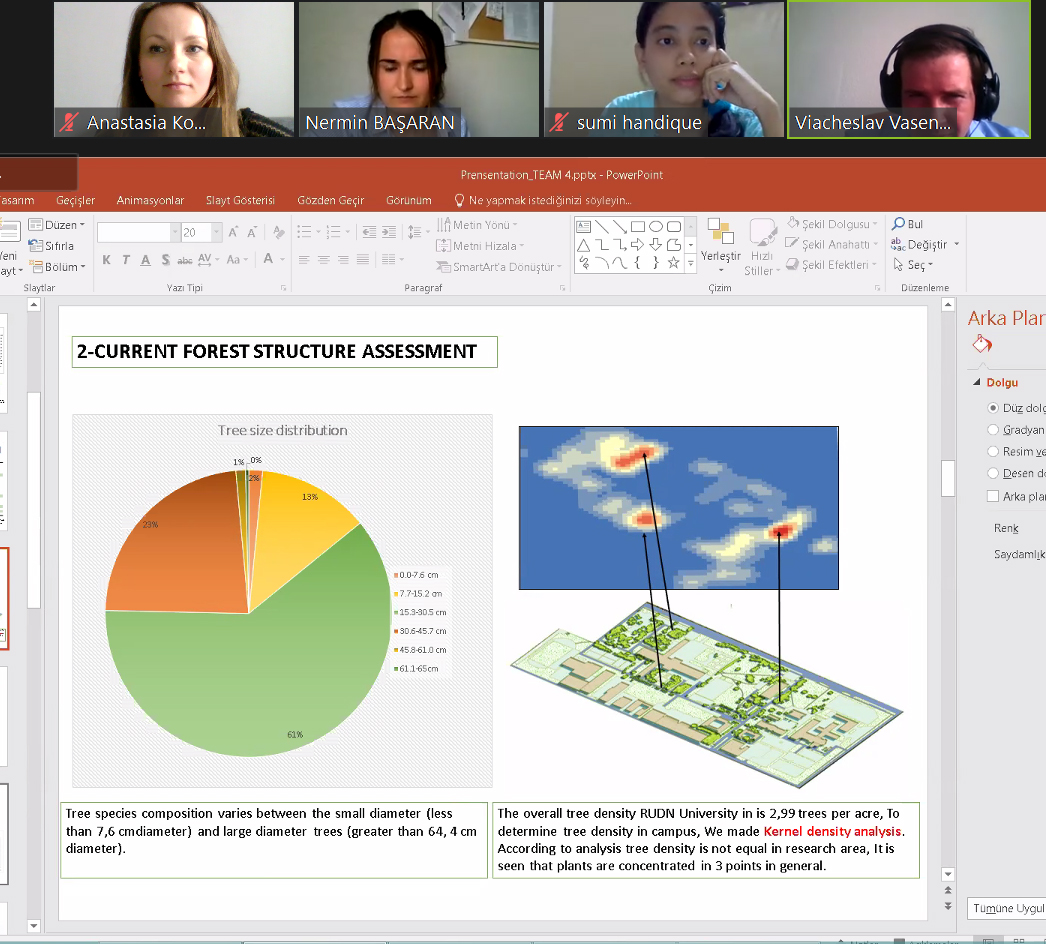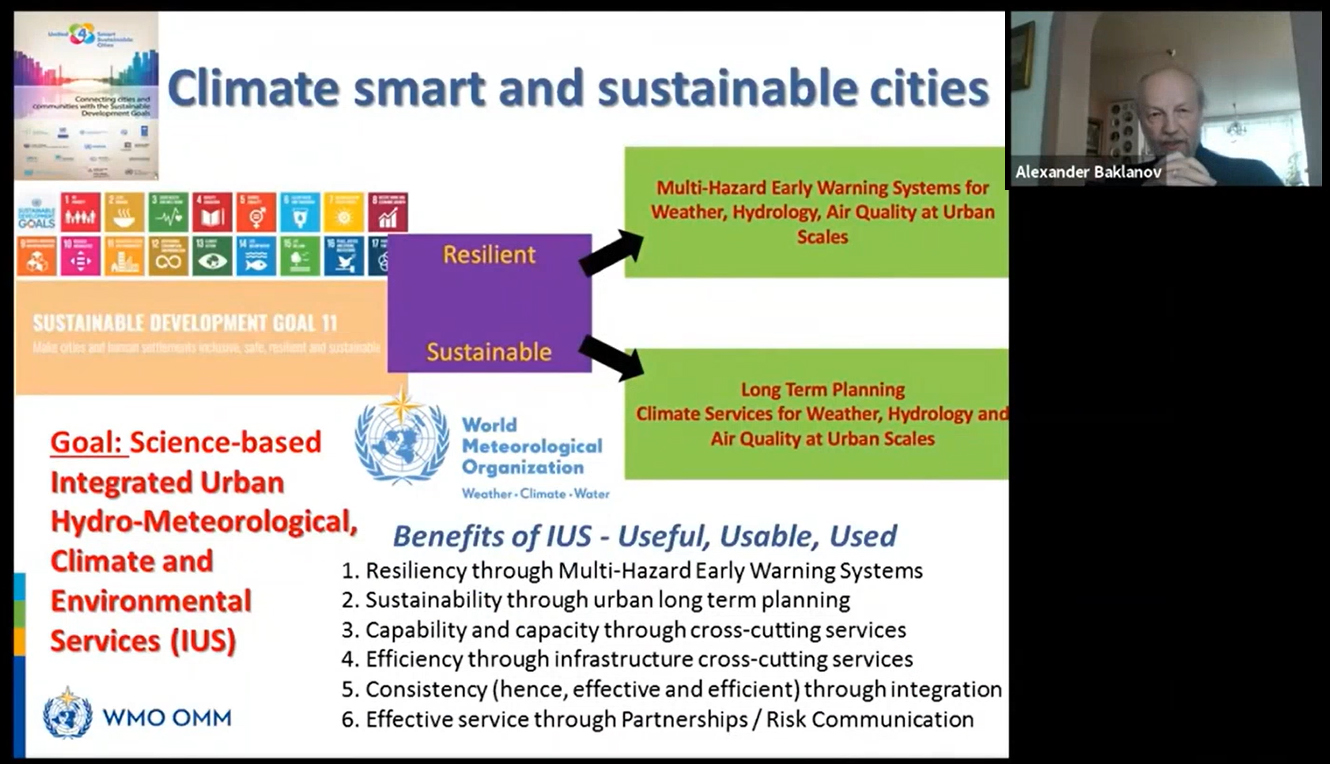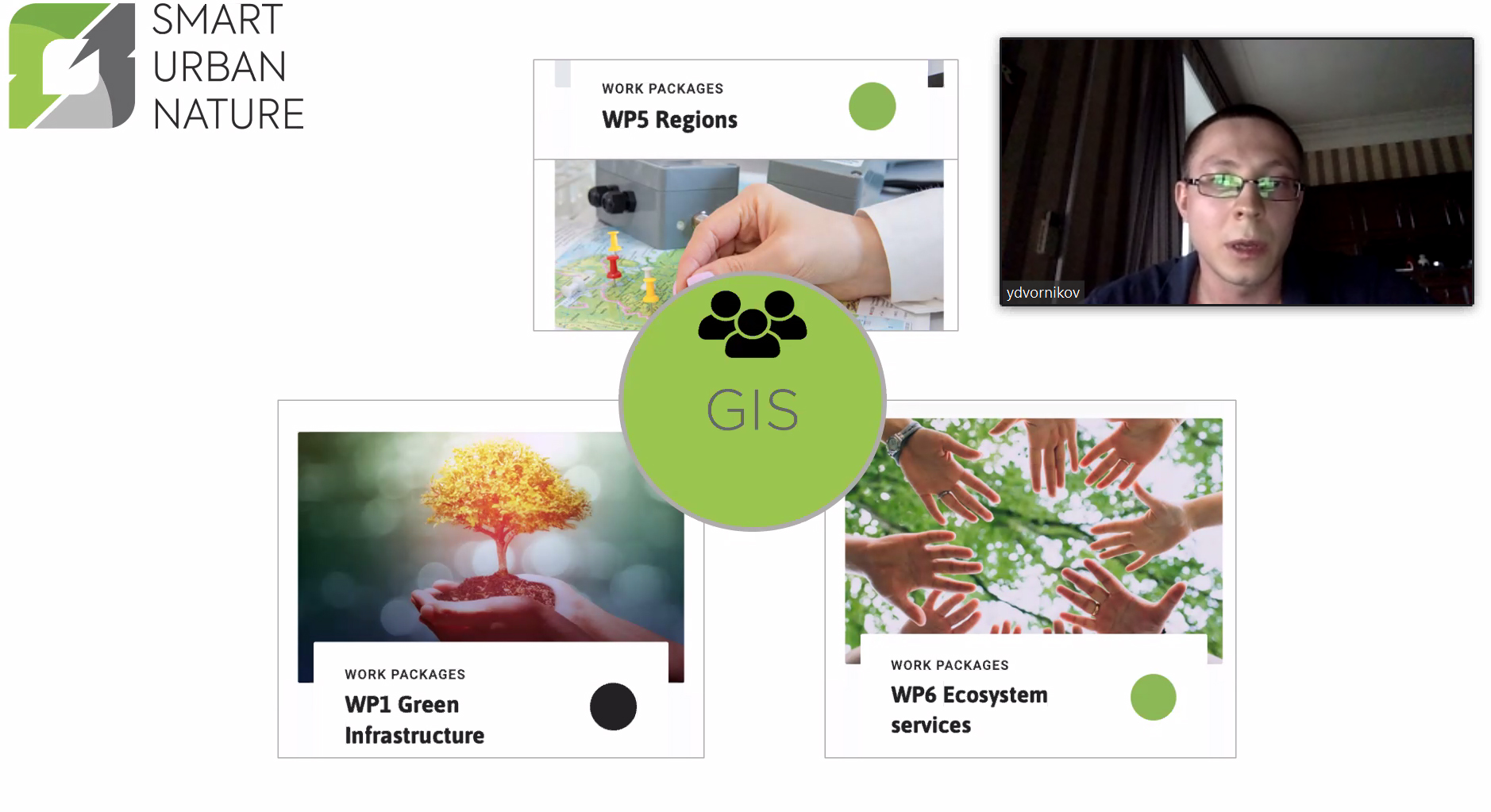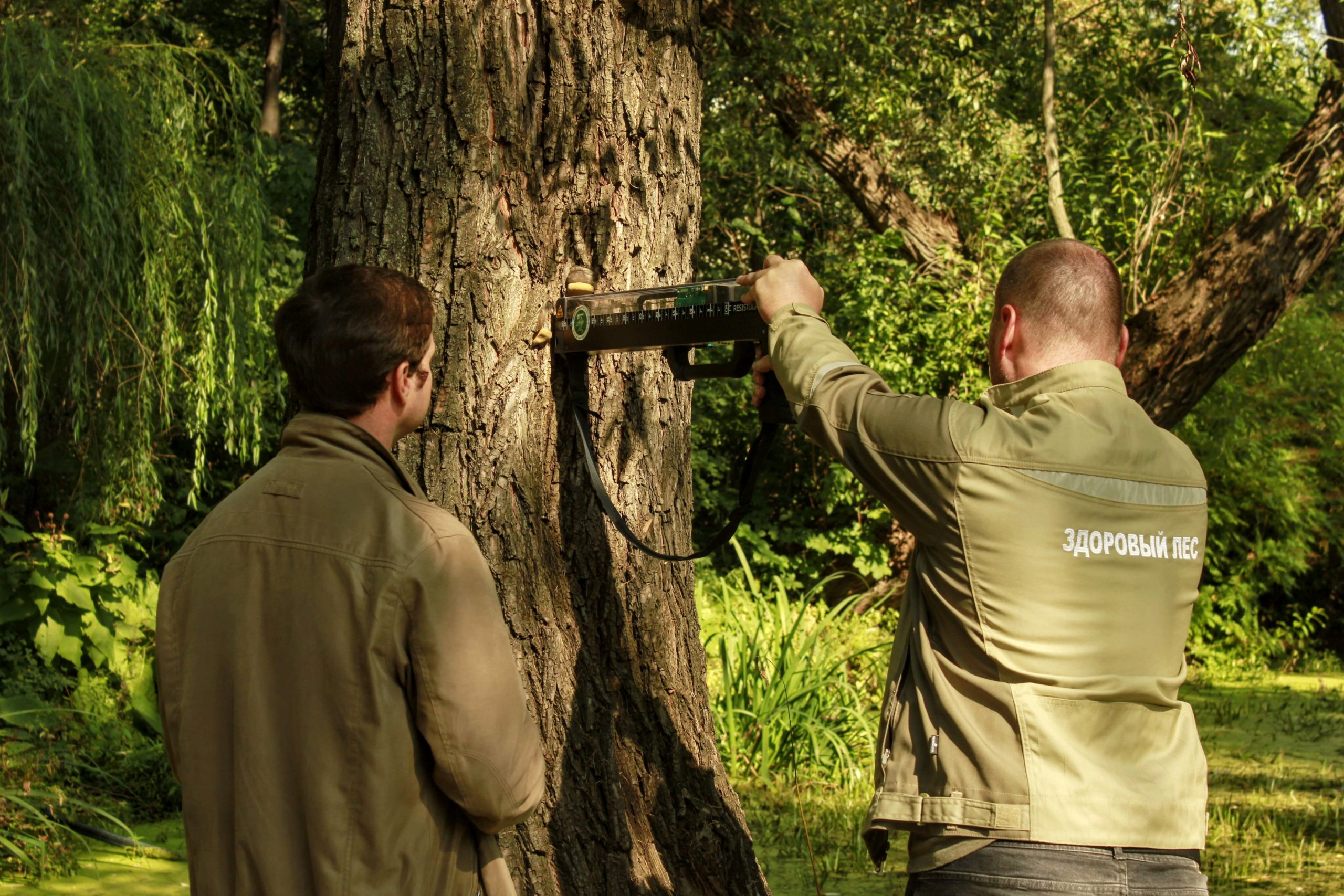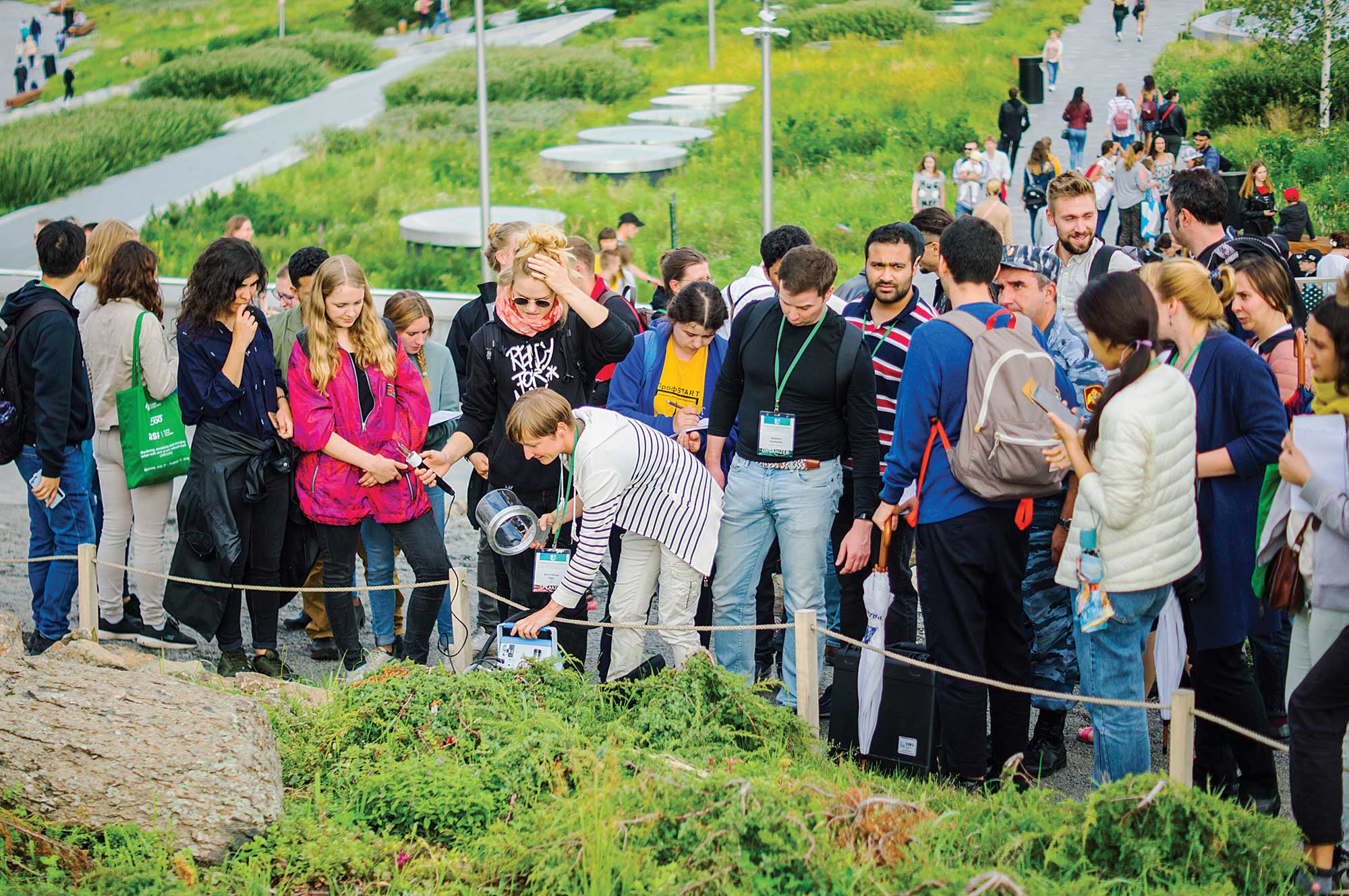An international scientific seminar “IoT technologies for ecosystem monitoring: towards a new era in urban ecology”, organized by Smart Urban Nature Research Center of Agrarian and Technological Institute of RUDN University will be held on May 11, 2022.
Studying urban soils and green infrastructure: the fifth 3MUGIS-2021 summer school took place online
From July 26 to August 2, 2021, the 5th International Summer School 3MUGIS (Monitoring, Modeling and Managing Urban Soils and Green Infrastructure) was held within the Department of Landscape Design and Sustainable Ecosystems Smart Urban Nature Laboratory of the RUDN University. The school was organized with the support of the Russian Science Foundation and under the umbrella of the International Union of Soil Scientists, RUDN University and the Institute of Urban Soils of New York in collaboration with universities, scientific organizations and research groups from around the world. The partners of the school were Brooklyn College (USA), Kola Science Center of the Russian Academy of Sciences, Southern Federal University and many others. Importantly, all the organizers and partners of 3MUGIS are united by the desire to exchange knowledge, ideas and experience at the international level.
ESCOLAR International School
Smart Urban Nature portal concept: in search of ideas and solutions
Last Saturday, the SUN Lab team held the first strategy session in the format of a team brainstorming session.
We discussed the concept of the Smart Urban Nature portal. This is a portal that will allow us to collect, analyze, deliver and present information about the state of urban ecosystems. Such a multifunctional open-access platform, in our opinion, will be a useful tool for different categories of users. During our session we tried to identifine these categories.
SUN Lab invites to the international conference “InterCarto. InterGIS 27. Geoinformation support of sustainable development of territories”
SUN Lab is among the organizers of the international conference “InterCarto. InterGIS 27. Geoinformation support of sustainable development of territories”. The conference will be held at Apatity (Murmansk region, Russia) and Nur-Sultan (Kazakhstan), August 21-27, 2021.
Download Information Letter (in English)
Download Information Letter (in Russian)
Studying urban soils and green infrastructure: the fourth 3MUGIS-2020 summer school took place online
From July 3-13, 2020, the IV International Summer School 3MUGIS (Monitoring, Modeling and Managing Urban Soils and Green Infrastructure) was held on the basis of the Department of Landscape Design and Sustainable Ecosystems at RUDN University. The school is organized with the support of the Russian Science Foundation (RSF) and under the umbrella of the International Union of Soil Scientists (IUSS) and the New York City Soil Institute in collaboration with universities, research institutions and research groups from around the world.
“Sustainable city means green city”: scientists, practitioners and municipal services discussed new challenges and prospects for sustainable megalopolises
From July 8 to 10, 2020, the Smart and Sustainable Cities international conference in advanced technologies for sustainable development of urban green infrastructure was held on the base of the Department of Landscape architecture and sustainable ecosystems. Due to specific circumstances of the COVID-19 pandemic, the event was held online. However, this did not prevent the conference for the second time from becoming an open discussion platform uniting not only the research community, but also municipal services, environmental protection agencies and organizations working in the field of urban management and landscaping.
Particular attention in organizing the SSC-2020 conference was paid to attracting young scientists – participants of the 3MUGIS Summer School, which was held from July 3 to 13. The conference brought together more than 100 participants from Russia, USA, Australia, Germany, France, Italy, Ukraine, Kazakhstan with the involvement of leading russian and foreign experts in the field of ecology, soil science, landscape design and sustainable development.
The SUN lab team summed up the results of the one-year work
On June 24, 2020, the annual Board meeting of the Smart Urban Nature Lab was held. The meeting took its place online and was devoted to a discussion of the results of the laboratory’s work. The Board meeting gathered all the lab’s scientists and experts headed by Riccardo Valentini as well as invited international colleagues and external experts from France, Italy, Germany and Russia.
In more details scientists discussed the current SUN project “Smart technologies to monitor, model and evaluate ecosystem services provided by urban green infrastructure and soils to support decision making in sustainable city development under global changes” which was financed by Russian Science Foundation and started in May 2019.
RUDN discusses promising projects and advanced technologies in the field of urban environmental monitoring
September 5-7, a series of events was held on the basis of the Department of Landscaping and Sustainable Ecosystems of RUDN ATI, dedicated to advanced technologies for monitoring green spaces in urban environments. Employees of the department, invited foreign researchers, as well as representatives of companies in the field of eco-monitoring presented their research projects and practical achievements in assessing the state of urban green infrastructure, shared their experience with monitoring devices, discussed the data and outlined the main prospects for the development of international cooperation in this area.
Participants of the 3MUGIS RUDN Summer School studied the sights and soils of Russia
July 27 – August 10, 2019 the III field international summer school “Anthropogenic and natural landscapes and soils of European Russia: from sea to sea” took place in RUDN University. School was held jointly with scientific and educational institutions of Russia, Germany and the USA.
This year, 50 participants represented Russia, Germany, Italy, China, the USA, Chile and France. In two weeks, they crossed the entire European part of Russia from the Barents Sea to the Sea of Azov in order to study zonal diversity and evaluate the results of anthropogenic impact on the ecosystems.

